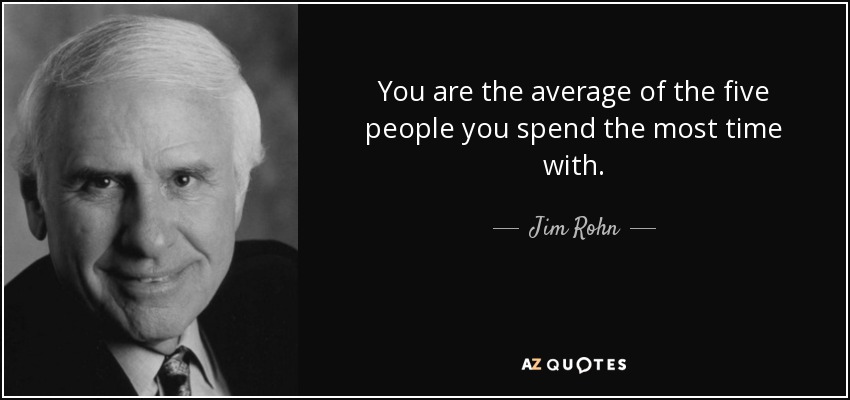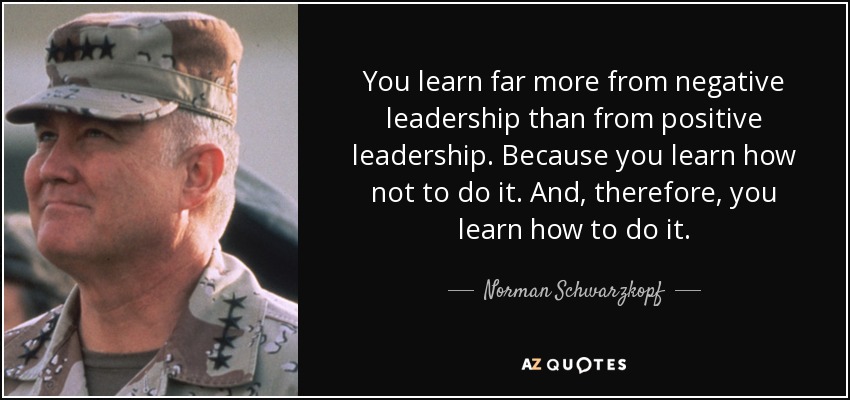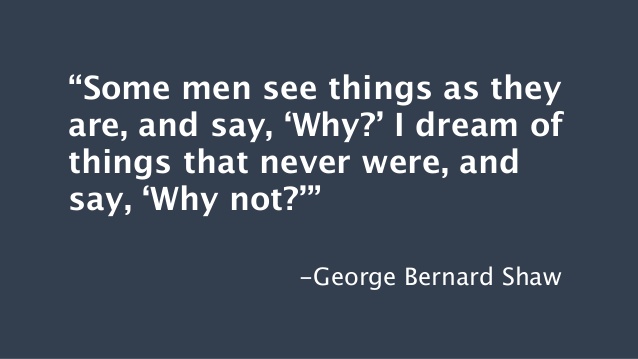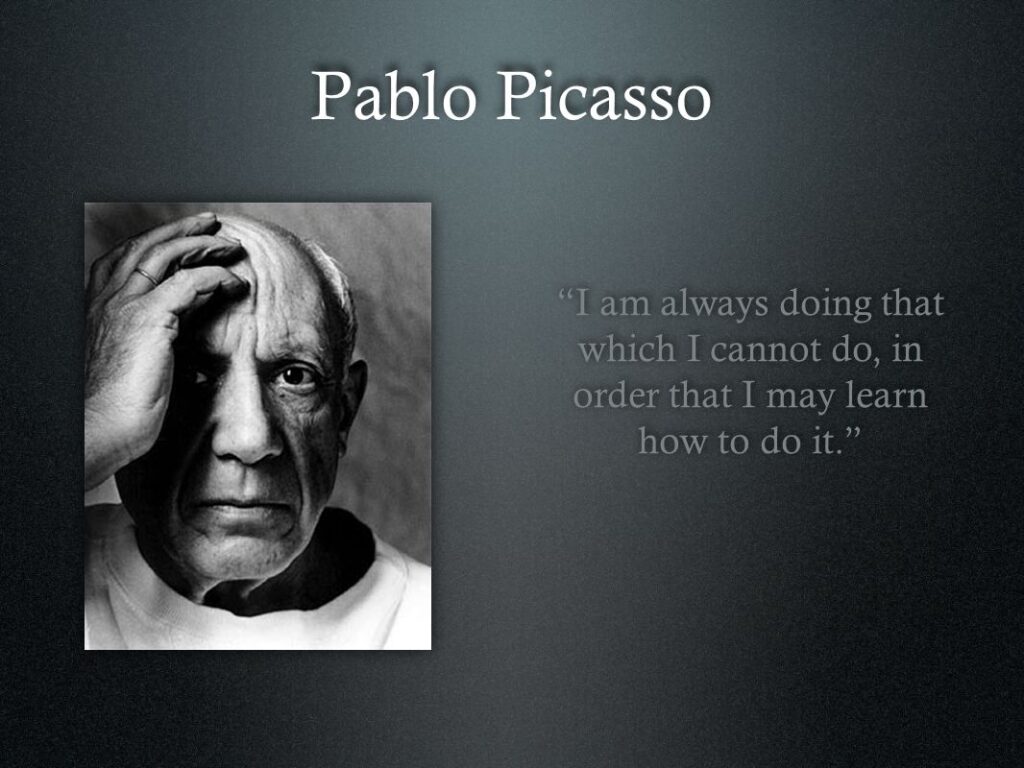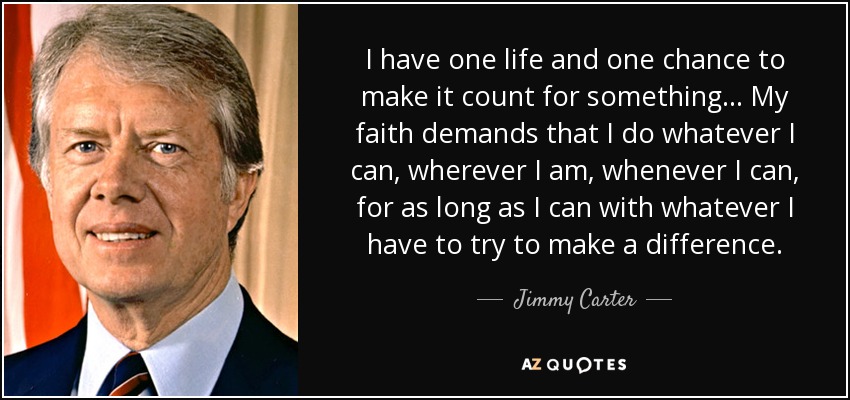Click here to return to Blog Post Intro
1. Law of Intentionality: Growth Doesn’t Just Happen
Do you have a plan for your personal growth? Maxwell notes that this question impacted his life greatly as a young leader. From then, he began to seek out new ways and new sources of learning. How about you? As musician Bruce Springsteen says, “A time comes when you need to stop waiting for the man you want to become and start being the man you want to be.”
Maxwell explains that the “Law of Diminishing Intent” notes the longer you wait to do something you should do now, the greater the odds that you will never actually do it. What do you need to do today for personal growth and development?
2. Law of Awareness: You Must Know Yourself to Grow Yourself
I like to point out that your most powerful leadership tool is a mirror (see this post for more). Leaders need to understand their strengths and passions. Maxwell points out that there is a direct connection between finding your passion and reaching your potential.
He goes on to describe three kinds of people when it comes to having direction in life:
- People who don’t know what they would like to do (confused);
- People who know what they would like to do but don’t do it (frustrated); and
- People who know what they would like to do and do it (fulfilled).
The people who get ahead in the world are the ones who look for the circumstances they want, and if they can’t find them, they make them
3. Law of the Mirror: You Must See Value in Yourself to Add Value to Yourself
As Maxwell puts it, people are never able to outperform their self-image. He shares some powerful stories to explain that it’s hard to feel bad about yourself when you’re doing something good for someone else. An “other-focused” mindset keeps us from self-pity.
So, if you want to feel valuable, add value to others. It’s a good rule of thumb to give at least one-tenth of your time to serving and adding value to others.
4. Law of Reflection: Learning to Pause Allows Growth to Catch Up with You
Peter Drucker puts it this way, “Follow effective action with quiet reflection. From the quiet reflection will come even more effective action.” Maxwell points out that the farther you go in life, the more critical it is that you take time to pause and think.
And he notes that you will never get far in life without knowing your mission. Can you state your personal mission in a sentence or two? Mine is “To be a leader wherever I am and improve leadership wherever I go.” To learn more about that, check out a copy of “S.M.I.L.E. as You Shoot for the Stars”—my 5 tips to help you shoot for the stars!
5. Law of Consistency: Motivation Gets You Going—Discipline Keeps You Growing
Former Ohio State Football National Champion Coach Jim Tressel says, “The hallmark of excellence, the test of greatness, is consistency.” Small disciplines repeated with consistency every day lead to great achievements gained slowly over time.
Maxwell says that you will never change your life until you change something you do daily.
6. Law of Environment: Growth Thrives in Conducive Surroundings
If you’re always at the head of the class, then you’re in the wrong class. We become the combined average of the five people we hang around the most.
Evaluate your personal-growth needs in these areas:
- The right soil to grow in (Growth): Consider the music you listen to; the thoughts you have; your experiences, hopes, and memories; and the books you read.
- The right air to breathe in: Purpose
- The right climate to live in: People
7. Law of Design: To Maximize Growth, Develop Strategies
Life is very simple, but it is very difficult to keep it that way. Designing your life is more important than designing your career, so develop a system that will maximize your time.
Jim Rohn says, “If you don’t design your own life plan, chances are you’ll fall into someone else’s plan. And guess what they may have planned for you? Not much.”
8. Law of Pain: Good Management of Bad Experiences Leads to Great Growth
Have you ever known someone who said, “I love problems”? But you probably know many who tell stories of their greatest gains that came from the middle of their pain.
Maxwell notes that no insight—no matter how profound—has value to you unless it is attached to changes you will make based on what you’ve learned.
9. Law of the Ladder: Character Growth Determines the Height of Your Personal Growth
Professors James Kouzes and Barry Posner, authors of The Leadership Challenge, have spent more than 25 years surveying leaders in many different organizations. Their results have been striking in their regularity over the years, and they do not significantly vary by demographical, organizational, or cultural differences. What quality is most admired in leaders? Honesty.
General Norman Schwartzkopf says, “99% of leadership failures are failures of character.”
U.S. Senator Dan Coats says, “Character cannot be summoned at the moment of crisis if it has been squandered by years of compromise and rationalization. The only testing ground for the heroic is the mundane. The only preparation for that one profound decision which can change a life, or even a nation, is those hundreds of half-conscious, self-defining, seemingly insignificant decisions made in private. Habit is the daily battleground of character.”
10. Law of the Rubber Band: Growth Stops when You Lose the Tension Between Where You Are and Where You Could Be
In what areas of your life have you lost your stretch and settled in? Where are you falling short of your potential? Maxwell notes that 42% of college graduates never read a book after college. If that’s true for you, continue checking out the book summaries on this blog!
11. Law of Trade-offs: You Have to Give Up to Grow Up
In general, unsuccessful people make bad trade-offs; average people make few trade-offs; and successful people make good trade-offs. The difference between where we are and where we want to be is created by the changes we are willing to make in our lives.
When you’re considering trade-offs, it’s just as important to know what you are not willing to give up as it is to identify what you are willing to give up. Each of us needs to know our non-negotiables!
12. Law of Curiosity: Growth is Stimulated by Asking Why?
World-Renowned Management Expert Peter Drucker says, “My greatest strength as a consultant is to be ignorant and ask a few questions.”
Anytime a person is answering more than asking, you can be sure they’ve slowed down in their growth and have lost the fire for personal growth. What about you? Are you still asking questions? That’s a key to your growth.
13. Law of Modeling: It’s Hard to Improve When You Have No One but Yourself to Follow
Many people who decide to grow personally find their first mentors in the pages of books. Former New York City Mayor Rudy Giuliani says, “All leaders are influenced by those they admire. Reading about them and studying their traits inevitably allows an inspiring leader to develop his own leadership traits.”
Early in my career, I was advised, “Get a Mentor.” That was invaluable for me (see my Mount Rushmore of Mentors post). I encourage you to find what Maxwell calls a next-step mentor—someone who is 2-3 steps ahead of you.
14. Law of Expansion: Growth Always Increases Your Capacity
Most experts believe that people typically only use 10% of their true potential.
As Poet Henry Wadsworth Longfellow puts it, “The purpose of that apple tree is to grow a little new wood each year. That is what I plan to do.”
Consider the following questions: If I knew I couldn’t fail, what would I attempt? If finances were not an issue, what would I be doing with my life?
15. Law of Contribution: Growing Yourself Enables You to Grow Others
Founding Father Benjamin Franklin said, “I would rather have it said, ‘he lived usefully’ than ‘he died rich.’” So every day, Ben Franklin asked himself in the morning, “What good shall I do today?” and in the evening, “What good have I done today?”
Make the decision to put others ahead of your own agenda. Serve others instead of yourself. And remember, sometimes the seeds you sow take a long time to grow. But you always see a harvest.
Now, that’s Out of This World Leadership from Jimmy Carter. How about you? What’s your one thing?



